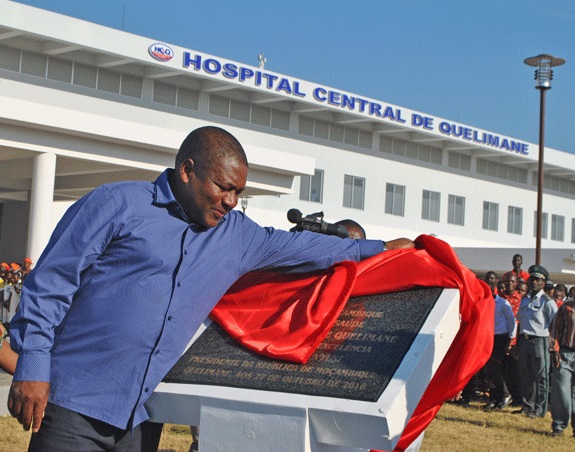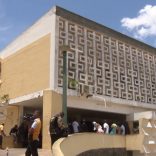Mozambique: Spanish NGO brings skin cancer surgery to Nampula province - Watch
Nyusi inaugurates Mozambique’s largest hospital, calls for increased disease prevention

Noticias
Opening the new Quelimane Central Hospital, the largest post-independence project of its kind, in Zambezia yesterday, President Filipe Nyusi said the population had a responsibility to strengthen preventative measures and follow the recommendations of health personnel strictly in order to reduce the need to seek medical treatment for preventable diseases.
“Despite being new, modern, spacious and equipped with the latest technology, the Government’s desire is not to see many hospitalised patients, because disease can be prevented with a more proactive attitude among people,” said Nyusi.
According to the head of state, a hospital is not the be-all and end-all, and everyone should be concerned to take care of their own health and improve sanitary conditions in the environment. Nyusi was alluding to poor sanitation in Quelimane, with household waste in many parts of the city providing ideal breeding conditions for mosquitoes and other carriers of lethal diseases such as malaria.
Nyusi noted that Zambezia province has high rates of malaria infection, and that was why he was inviting people to strive to improve the hygiene and sanitation of the places where they live or spend most of their time.
“The city of Quelimane is very dirty. It is true that the collection and treatment of waste is the responsibility of the City Council, but we have to make the places where we live clean; there are things that depend on us and things that we should avoid,” urged the President.
The President said the new hospital would reduce the cost to families of getting health care in cities like Maputo, Beira and Nampula, and even in countries like India. Indeed, many of the specialties that people had looked for elsewhere in the country and abroad were now available in Quelimane Central Hospital, with its 600 beds able to meet demand from patients coming from other parts of the country.
The hospital, which formally entered into service yesterday and cost more than US$80 million, has a team of national and Cuban doctors as well as support staff. It will serve nearly five million people in central and northern Mozambique, and offers services which include cardiology, neurology, tomography and radiology, among others.













Leave a Reply
Be the First to Comment!
You must be logged in to post a comment.
You must be logged in to post a comment.